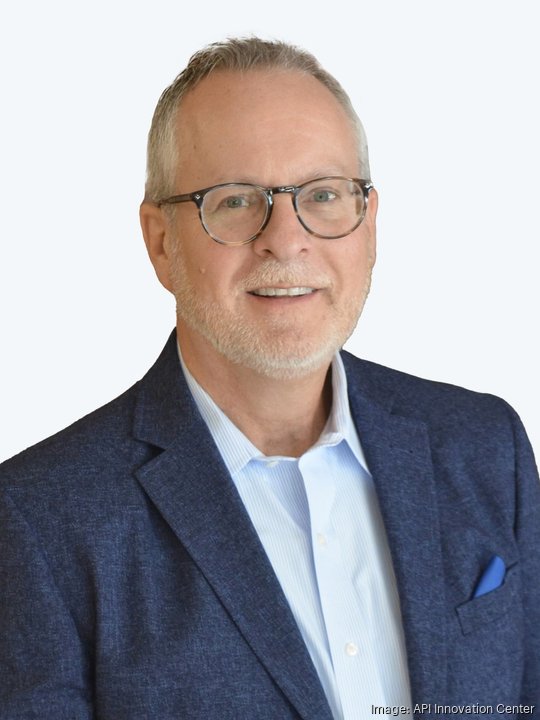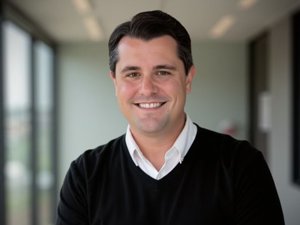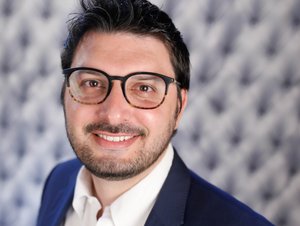
The API Innovation Center (APIIC), a St. Louis-based nonprofit aiming to improve the U.S. supply chain for pharmaceutical ingredients, has received a multimillion-dollar federal grant to produce three ingredients used in a number of generic medications.
The Department of Health and Human Services gave $14 million to APIIC to produce three critical active pharmaceutical ingredients used to treat asthma, diabetes and anxiety disorders.
Such ingredients are used in a number of generic medications; however, at least 83 of the 100 most-used generic medicines in the United States have no domestic source for them, creating a national health security and supply-chain risk, officials said.
While the federal government has taken steps to respond to national security and climate change risks by standing up whole industries in recent years — for instance, the CHIPS and Science Act aims to establish domestic computer chip production and the Inflation Reduction Act contains lavish funding and incentives for clean energy — APIIC Chief Operating Officer Kevin Webb described the $14 million from the Administration for Strategic Preparedness and Response’s Center for Industrial Base Management and Supply Chain as "surgical."
"If you follow the progression of how this conversation has evolved over the past couple years: between administrations, whether it be the Trump administration or the early years of the Biden administration, there is no good answer to how you solve this problem," he said. "How do you look at an over-reliance on foreign sources, where most of our drugs are being sourced and produced someplace else besides the United States? It boggles the mind when you try to figure out how you fix it."
The agreement is the first to be funded under the Defense Production Act's Title III for manufacturing of key starting materials and active pharmaceutical ingredients.
“The award we are announcing today enables a domestic supply chain that provides on-demand manufacturing for essential medicines,” Dawn O’Connell, assistant health and human services secretary for preparedness and response, said in a statement. “We are committed to using innovative and flexible domestic manufacturing to increase capacity and reduce reliance on foreign sources.”
Building another $500 million pharmaceutical factory would not fix the systemic problem of sourcing the active pharmaceutical ingredients somewhere else, Webb said. "You can build a new drug manufacturing plant to make pills, capsules and injectables, all that kind of stuff," he said. "But if you keep allowing these companies to and building these new manufacturing sites that source their active pharmaceutical ingredients — the essence of what gives drugs their therapeutic value — you're not fixing a problem. You can put pills and capsules together anywhere; it's what makes the drug work that we need to source."
He said albuterol (typically taken as an inhaler), desmopressin (used to treat diabetes symptoms) and the sedative lorazepam all have historically high levels of shortages and, in terms of national security, unique roles in treating civilians and service personnel alike.
"It's not just a matter of saying 'if we can produce them there, let's just produce them here,'" Webb said. "We're creating new pathways. We're creating new processes."
He added, "We're not talking about drug discovery or drug innovation. This is taking the drugs that are the backbone of our health system. Ninety-five percent of the drugs we as Americans take are generic: These are old drugs. There is no innovation."
Webb said most drugs are produced using 50-to-80-year-old technology called the "batch" manufacturing process, in which pharmaceuticals are produced en masse and sequentially. A problem, he said, is that the batch process is error-prone, given its cumbersome, time-consuming and antiquated nature.
"In order to successfully re-shore these drugs and strengthen domestic manufacturing, we have to have a new manufacturing process," Webb said. "We can't just always do it the way we've done it, because that's the reason they've all left shore anyway."
For the sake of competition, in light of higher domestic labor costs, and regulatory issues, producers need to reduce manufacturing costs, which requires new technology. Webb said the federal money, which is being augmented by $2.4 million from APIIC, will create new chemical processes through new advanced manufacturing equipment that accelerates the production line.
But the nonprofit can't do it alone. "Fourteen million dollars, to be quite candid, is not a lot of money to put into creating new pathways, manufacturing equipment and delivering on three critical medicines that are critical to our national security," Webb said.
So the APIIC's goal is to cultivate strategic partners to work together on drug manufacturing. Webb said the nonprofit's state funding came with requirements that the money would stay in Missouri and create an innovation hub. Partners include the University of Missouri-St. Louis, MilliporeSigma (part of the Merck Group), the United States Pharmacopeia and Mallinckrodt Specialty Generics.
"Missouri is leading in restoring America's pharmaceutical manufacturing strength. By focusing on developing active pharmaceutical ingredients right here in Missouri, we are tackling a pressing national health security issue: our over-reliance on foreign suppliers,” Gov. Mike Parson said in a statement. “Recognizing our strengths, particularly in pharmaceutical manufacturing, we collaborated with the General Assembly to invest in bringing critical medicine production back to the U.S. The state’s investment, now bolstered by federal support, is a clear indicator that what we are doing in Missouri is working. We are not just talking about solutions. We’re delivering results that are necessary steps toward safeguarding the health and security of our nation."
Webb said a survey of 25% of U.S. drug manufacturers found between a third and half of their manufacturing lines are idled and can be repurposed, again emphasizing that the way out of the problem is not building more factories.
"As a public-private industry, what we do with the API Innovation Center is take state funding and invest that into creating new pathways and new equipment that gets placed in these manufacturing sites," he said. "That is what we're going to do here. We're placing equipment for these three drugs that we're developing on behalf of the federal government."
"We're going to work with the University of Missouri-St. Louis as our academic partner to develop the chemistry to develop from a batch to a continuous process. We're going to work with and invest in the equipment to develop the new manufacturing processes; once that equipment is commercialized or scaled up, then it gets placed into either Apertus or Mallinckrodt that have idle manufacturing lines. Then we can create and build that up," Webb said.
He said the new technology can also significantly reduce manufacturing footprints and timelines: a year's worth of the global demand for chemotherapy drug lomustine can be produced in one day using equipment that fits on a standard desk. And he said the manufacturing equipment can be continuously and quickly repurposed with new reactors or pumps to make different active pharmaceutical ingredients.
"Rinse and repeat, rinse and repeat, just keep running (active pharmaceutical ingredients) through there," Webb said. "Now you have new manufacturing processes, new skilled workforces, you have a new U.S. market for it, you have reduced manufacturing costs, and over time now, you start to make an incremental change in how we're sourcing and how we're purchasing our drugs here in the United States."
Webb said APIIC will work with workforce development groups to ensure employees are prepared to work in the industry. He said timelines are dependent upon Food and Drug Administration review processes.
"This train is leaving the station, and it's attracting a lot of attention — not only from the government but from other commercial partners who are now very interested in coming to St. Louis because of the work that we're doing," Webb said. "This is transformative. It's changing the way that drugs are made, and it's changing how people are taught and the skill sets necessary to run this new technology."
Founded in 2021 as the Active Pharmaceutical Ingredients Innovation Center, APIIC was launched through the Cortex Innovation Community. In 2023, APIIC received a $9.5 million grant from Missouri Technology Corp., the private-public organization that supports innovation and entrepreneurship in Missouri. APIIC reported total revenue of $107,679 and total expenses of $188,148 for the year ended Dec. 31, 2022, according to its most recent available IRS filing.











